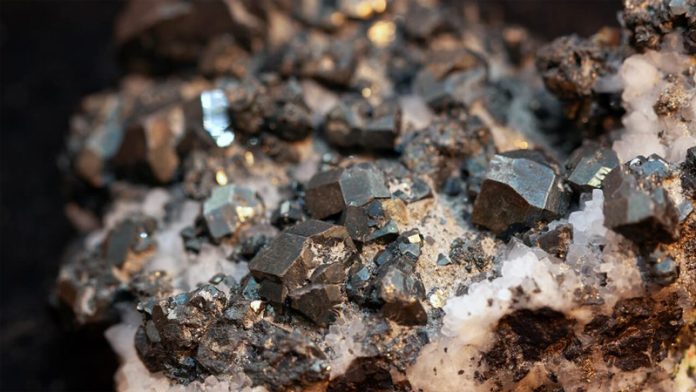Procurement price of ethanol raised
NEW DELHI, Jan 29:
The Government on Wednesday approved a Rs 16,300-crore National Critical Mineral Mission, envisaging a total outlay of Rs 34,300 crore spread over seven years, with an aim to achieve self-reliance and accelerate India’s journey towards green energy transition.
According a release by the Mines Ministry, Public Sector Enterprises are expected to contribute Rs 18,000 crore to the mission which aims at promoting exploration of critical minerals within the country and at offshore locations.
Follow the Daily Excelsior channel on WhatsApp
Critical minerals such as copper, lithium, nickel, cobalt and rare earth are essential raw materials required to fuel the growth of rapidly-growing clean energy technologies and their expanding uses ranging from wind turbines and electricity networks to electric vehicles and battery manufacturing.
Demand for these minerals is growing with clean energy transitions gathering momentum worldwide.
Briefing the media after the Cabinet meeting, information and broadcasting minister Ashwini Vaishnaw said that the mission aims to reduce the dependence on import of critical minerals and ensure self-reliance.
“This mission is of Rs 16,300 crore,” he said, adding that 24 critical minerals have been identified.
Stating that the critical mineral is essential for the economy, the minister said that major objectives of this mission are to increase exploration, reduce import dependence, acquire mineral blocks overseas, develop technologies for processing of critical minerals and recyle the minerals.
A comprehensive plan, he said, is made in this mission.
“The Union Cabinet, chaired by Prime Minister Narendra Modi, has approved the launch of the National Critical Mineral Mission (NCMM) with an expenditure of Rs 16,300 crore and expected investment of Rs 18,000 crore by PSUs, etc,” the Ministry said.
The NCMM will encompass all stages of the value chain, including mineral exploration, mining, beneficiation, processing, and recovery from end-of-life products.
The mission will intensify the exploration of critical minerals within the country and in its offshore areas.
It aims to create a fast-track regulatory approval process for critical mineral mining projects. Additionally, the mission will offer financial incentives for critical mineral exploration and promote the recovery of these resources from overburden and tailings.
The mission aims to encourage Indian public sector enterprises and private sector companies to acquire critical mineral assets abroad and enhance trade with resource-rich countries. It also proposes development of stockpile of critical minerals within the country.
The mission includes provisions for setting up of mineral processing parks and supporting the recycling of critical minerals. It will also promote research in critical mineral technologies and proposes setting up Centre of Excellence on Critical Minerals.
Adopting a whole-of-government approach, the mission will work closely with relevant Ministries, PSUs, private companies, and research institutions to achieve its objectives.
In a bid to augment the exploration and mining of critical minerals, the Government had in 2023 amended the Mines and Minerals (Development and Regulation) Act, 1957. Consequently, 24 blocks of strategic minerals were auctioned.
Further, Geological Survey of India (GSI) has undertaken 368 exploration projects for critical minerals over the past three years, with 195 projects currently underway in 2024-25.
In 2025-26, GSI will take up 227 projects for various critical minerals.
The Centre has already eliminated customs duties on a majority of critical minerals in the FY25 budget to increase the availability of critical mineral in the country and encourage the industry to set up processing facilities in India.
These initiatives highlight the country’s commitment to secure the supply of critical minerals.
The Union Cabinet also approved a three per cent increase in the procurement price for ethanol made from C-heavy molasses to Rs 57.97 per litre for the 2024-25 supply year, while keeping rates unchanged for other feedstocks.
The price increase, aimed at boosting ethanol production from sugar industry by-products, comes as India pushes to meet its accelerated target of 20 per cent ethanol blending in petrol by 2025-26.
Prices for ethanol produced from B-heavy molasses and sugarcane juice/ sugar/ sugar syrup remain unchanged at Rs 60.73 and Rs 65.61 per litre, respectively.
Vaishnaw told reporters that C-heavy molasses contains very little sugar content compared to other sugarcane feedstock.
“The more we encourage C-heavy molasses for ethanol production, it will be beneficial for both farmers and environment,” he said.
Public sector oil marketing companies (OMCs) will procure ethanol at the revised rates during the ongoing 2024-25 supply year (November-October) under the government’s Ethanol Blended Petrol (EBP) programme.
The Government said in a statement that the 3 per cent price increase for C-heavy molasses ethanol aims to ensure sufficient availability to meet increased blending targets.
As in previous years, GST and transportation charges will be paid separately to support sugarcane farmers.
The price adjustment would help ensure adequate ethanol supplies to meet increased blending targets. State-run oil marketing companies aim to achieve 18 per cent blending in the current supply year ending October 2025.
All India Sugar Trade Association (AISTA) Chairman Praful Vithalani said the selective price hike as a “precautionary step”, suggesting the government may want to boost sugar production by not increasing prices for syrup and B-molasses derived ethanol.
Ethanol blending by public sector OMCs has risen from 38 crore litres in 2013-14 to 707 crore litres in 2023-24, achieving average blending of 14.60 per cent.
The EBP programme has generated foreign exchange savings of over Rs 1,13,007 crore and substituted about 193 lakh tonnes of crude oil in the decade until December 1, 2024, the statement added. (PTI)


